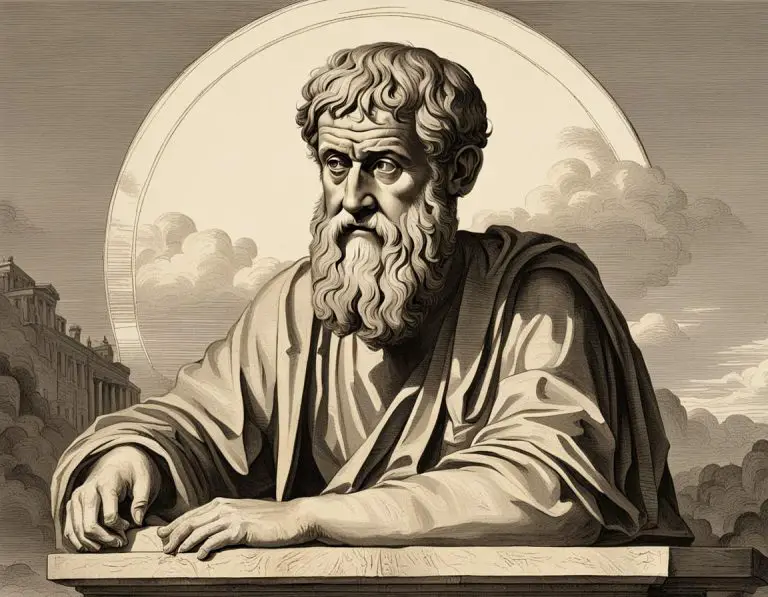“Timaeus” by Plato
“Timaeus” by Plato takes readers on a profound journey into the realm of cosmology. Through this dialogue, Plato delves deep into the creation of the universe, exploring the concept of the Demiurge as the supreme craftsman shaping the world. The intricate blend of philosophy and scientific inquiry in “Timaeus” prompts readers to ponder the underlying principles of existence and the interconnectedness of all things.
As one of Plato’s seminal works, “Timaeus” challenges readers to contemplate the nature of reality and the forces that govern the cosmos. The dialogue presents a captivating narrative that weaves together metaphysical notions with a detailed account of the universe’s formation. By engaging with the intricate cosmological theories proposed in “Timaeus,” readers are invited to reflect on the timeless questions of existence and the intricate tapestry of the universe.
Exploration of cosmology in “Timaeus”
In “Timaeus,” Plato delves into the realm of cosmology, presenting a profound exploration of the origins and structure of the universe. Through the dialogue between Timaeus and Socrates, readers are taken on a journey to understand the complex interplay between the physical world and the realm of forms. Plato’s vivid descriptions and intricate explanations offer a glimpse into his philosophical reflections on the nature of reality and existence. By contemplating the creation of the cosmos, readers are challenged to ponder the fundamental questions of existence and the underlying principles that govern the universe.
Plato’s cosmological ideas in “Timaeus” go beyond mere theoretical speculation; they delve into the essence of being and the interconnectedness of the material and immaterial worlds. Through geometric analogies and intricate metaphors, Plato constructs a framework that seeks to explain the harmonious order present in the cosmos. The notion of a divine craftsman shaping the universe according to eternal principles underscores Plato’s belief in a rational and intelligible cosmos. As readers navigate through the intricate layers of Plato’s cosmological discourse, they are invited to contemplate the intricate harmony that pervades the universe and the underlying unity that binds all things together.
“Meno” by Plato
Plato’s “Meno” delves into the essence of virtue and the nature of knowledge. In this dialogue, Socrates engages with Meno in a discussion about whether virtue can be taught or if it is an innate quality within individuals. Through a series of thought-provoking questions and arguments, Socrates challenges Meno’s understanding of virtue and prompts him to reconsider his beliefs. The dialogical format of “Meno” allows readers to witness the process of philosophical inquiry and critical thinking in action.
Moreover, “Meno” serves as a platform for examining the complexities of knowledge. Socrates guides Meno through an investigation of what constitutes knowledge and whether it can be acquired or remembered. The dialogues between Socrates and Meno not only reveal the limitations of human understanding but also highlight the importance of intellectual humility in the pursuit of knowledge. By engaging with foundational questions on virtue and knowledge, Plato’s “Meno” continues to offer readers profound insights into the nature of ethics and epistemology.
Insights into virtue and knowledge in “Meno”
In Plato’s “Meno,” the exploration of virtue and knowledge takes center stage as Socrates engages in a dialogue with Meno, a young nobleman. The central question revolves around the nature of virtue – is it something that can be taught, or is it inherent within individuals? Through a series of probing questions and thought experiments, Socrates guides Meno towards a deeper understanding of virtue as a form of knowledge, rather than mere adherence to societal norms.
Furthermore, “Meno” delves into the concept of recollection, suggesting that all learning is essentially a process of recollecting knowledge that the soul had possessed prior to birth. This ties into the idea that true education is not about imparting new information but about guiding individuals to rediscover the eternal truths that already exist within them. By intertwining discussions on virtue, knowledge, and the nature of learning, “Meno” challenges readers to reflect on the essence of these fundamental concepts and their implications on one’s quest for wisdom.
“Phaedrus” by Plato
“Phaedrus” by Plato delves into the art of rhetoric and its relationship with truth, capturing the essence of persuasive communication. Socrates engages in a dialogue with Phaedrus as they discuss the nature of love and the power of speech in influencing others. Through their exchange, Plato intricately weaves together themes of beauty, love, and the ethical use of persuasive language.
The dialogue in “Phaedrus” also critiques the limitations and dangers of relying solely on written texts for knowledge dissemination. By emphasizing the importance of oral tradition and direct communication, Plato underscores the dynamic and interactive nature of learning and philosophical discourse. The text challenges readers to reflect on the intricacies of communication, highlighting the subtleties of language and the profound impact of persuasive speech on individuals and society as a whole.
Analysis of rhetoric and truth in “Phaedrus”
In Plato’s “Phaedrus,” readers are taken on a thought-provoking journey through the exploration of rhetoric and truth. Through the dialogue between Socrates and Phaedrus, Plato delves into the complexity of persuasive speech and the nature of genuine knowledge. The text challenges readers to question the power of words and their ability to convey truth or falsehood.
One of the central themes in “Phaedrus” is the contrast between genuine knowledge and mere rhetoric. Plato emphasizes the importance of seeking truth through introspection and understanding, rather than relying solely on the art of persuasive language. By critiquing the superficial allure of eloquent speeches, the dialogue encourages readers to look beyond the surface and uncover the deeper truths that lie beneath the veneer of persuasive discourse.
Related Links
Review of Plato’s Theory of Forms
Why The Allegory of the Cave is Relevant Today
